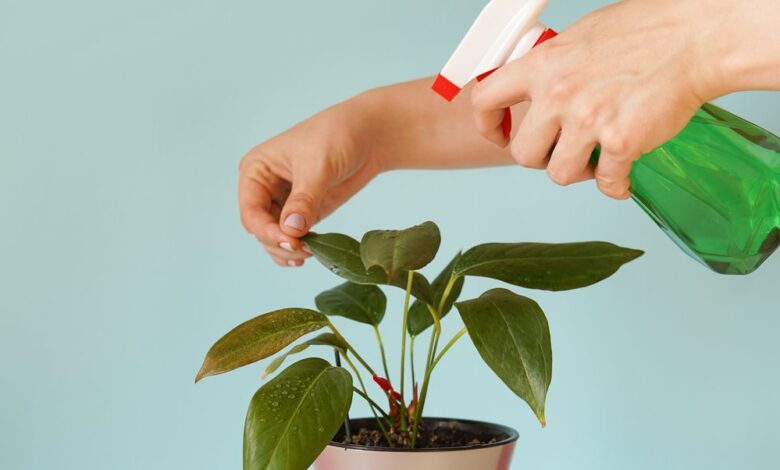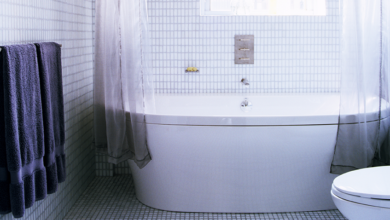9 Best Plants Misters and Spray Bottles for Indoors in 2022

You might be wondering: how does a plant mister work? Misters help to temporarily increase the humidity in the air by coating a plant’s foliage with water, kind of like what naturally happens in the rainforest. Misting can also be a great way to help clean dust off leaves and aid in plant propagation. However, not all plants like misting — some prefer a watering can. We spoke with plant and garden experts to help you better understand which houseplants require misting and what to consider when shopping for a plant mister, plus keep scrolling for the best indoor plant misters on the market right now.
Popular retailers like Amazon and Ikea have a number of great options, as do online plant shopping platforms like Bloomscape and The Sill. We’ve rounded up the best misters, including everything from traditional plastic spray bottles, to decorative picks like copper plant misters and glass plant misters with metal pumps, to high-tech options like automatic and electric plant misters. There are affordable picks (one is less than $5!) like all-purpose spray bottles, as well as some more decorative options that make the perfect gift for plant lovers — like the Haws plant mister.
Which Houseplants Require Misting?
Whether or not a plant mister is an essential gardening tool depends on what kind of houseplants you’re growing. While some plants thrive in humid and moist environments, others do not. “Keep your plants’ natural habitats in mind,” says Erin Marino, plant expert at The Sill. If you’re not sure whether your plant requires misting, Marino suggests asking one important question: “Is the air humid where my plant is from? If yes, mist away. If not, put down the mister.”
Epiphytes, or plants that grow on top of other plants or trees, benefit most from misting. “Epiphytic plants, like air plants, have adapted to thrive without roots in the soil,” says Lindsay Pangborn, gardening expert at Bloomscape. “Instead, they take in moisture through their foliage, meaning that regular misting is a must to keep them well-hydrated.”
Common epiphytic houseplants include tillandsia (also known as air plants), orchids and ferns. “You can use a mister to increase the humidity in your air, which helps the popular tropical houseplants such as pothos and philodendrons,” says Plant Enthusiast Marcus Bridgewater, also known as Garden Marcus on Instagram.
When watering air plants, Bridgewater uses a mister to increase the humidity in the air to help tropical houseplants like monsteras and calatheas. “I spray the air around the plant so it gets the water indirectly,” he says. “Too much water can cause the plants to rot.”
How to Pick a Plant Mister?
When shopping for a plant mister, it’s important to consider three main factors: capacity, material and your own personal style.
- Capacity: Common plant misters vary in size, usually ranging from 10 to 25 ounces. Pangborn recommends choosing a plant mister with a larger capacity, around 25 ounces. “I find having an always-full mister encourages me to use it more regularly,” she says.
- Material: Popular options include metal, glass, plastic and ceramic. When choosing a material, it comes down to how you’ll be using your mister and your personal preference. While a glass or metal mister may look better aesthetically, plastic options are more lightweight and typically more affordable. “If you have a ton of plants you want to mist regularly, you may opt for a plastic mister because at a bigger size, you’ll want something that’s very lightweight,” says Marino.
- Style: “Since misting plants is truly a utilitarian task, function should be the main consideration,” says Pangborn. “That being said, having a mister that meshes with your style has its benefits, too. If it matches your aesthetic, you’ll be more likely to leave it sitting out and use it more regularly.”
TIP: “Always use room temperature or warm water, and keep in mind the quality of tap water where you live. You may want to use distilled water, rain water or leave tap water out overnight, to cut down on salt and mineral build-up on foliage.” — Erin Marino, plant expert at The Sill






